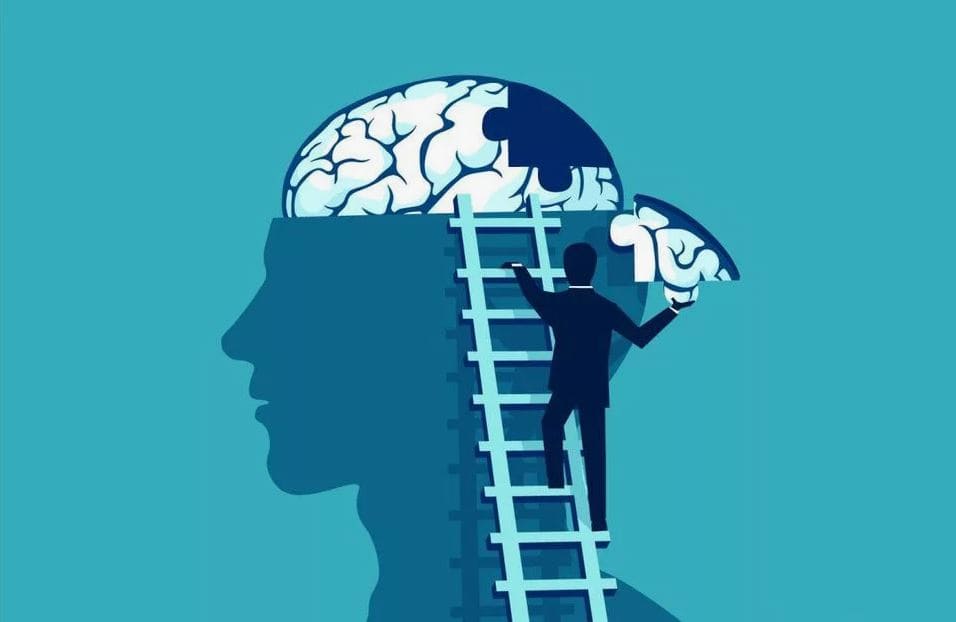Mastering Decision-Making Skills: A Comprehensive Guide


In today’s fast-paced world, it’s crucial to be able to make quick, informed decisions. Whether it’s in your personal life or at work, your decision-making skills can have a huge impact on your success and happiness. This article will explore some great techniques for making better decisions, give you some practical tips to improve your skills, and even draw some interesting parallels to the strategic game of Go.
Understanding Decision-Making Skills
Decision-making is a critical process that involves selecting the most appropriate course of action from a range of alternatives. This process requires the use of various cognitive skills, including:
- Analytical Thinking: This involves breaking down complex issues into smaller, more manageable components. It assists in comprehending the underlying factors and forecasting outcomes. For example, 60% of employers seek strong analytical abilities in candidates to manage data and make well-informed decisions.
- Problem-Solving: Effective decision-makers are able to identify solutions to challenges. This requires creative thinking and the ability to approach problems in a non-conventional manner. Approximately 75% of employers value employees who are able to solve problems independently.
- Emotional Intelligence: Recognizing and managing emotions, both one’s own and those of others, is essential. Emotional intelligence aids in making balanced decisions that take into account both rational and emotional factors. Studies have shown that 90% of high-performing individuals possess a high level of emotional intelligence.
- Risk Evaluation: Assessing the risks and benefits of each option is essential. This involves considering the potential drawbacks and weighing them against the advantages. According to recent studies, 68% of business leaders consider risk management to be a critical skill in decision-making.
Importance of Decision-Making Skills

- Efficiency: Better decision-making leads to more efficient problem-solving and task management.
- Effectiveness: Ensures that decisions contribute positively to personal and organizational goals.
- Leadership: Strong decision-making skills are often linked to effective leadership.
By honing these skills, people can improve their ability to make smart decisions that lead to great results in both their personal and professional lives.
Key Decision-Making Techniques
Developing effective decision-making skills can significantly improve your ability to select the most appropriate course of action. Here are some key techniques::
- Analytical Thinking: Breaking down complex problems into smaller, more manageable components aids in understanding the underlying factors and predicting possible outcomes. Research has shown that analytical thinking can increase problem-solving efficiency by up to 40%. For instance, the use of decision trees can help simplify complex choices by visualizing the potential consequences of various options.
- Creativity: Using brainstorming and lateral thinking to generate innovative solutions is essential. Creative problem-solving has been linked to a 70% increase in successful outcomes for business projects. Techniques such as mind mapping and the SCAMPER method (Substitute, Combine, Adapt, Modify, Put to another use, Eliminate, and Rearrange) can assist in generating diverse ideas.
- Emotional Intelligence: Emotional intelligence (EQ) plays a crucial role in decision-making, as it allows individuals to align their choices with their values and long-term goals. According to research, 90% of high performers possess a high level of EQ, which enables them to manage stress and make balanced decisions. This is because emotional intelligence allows individuals to harness their emotions in order to make more informed decisions.
- Collaboration: Involving others in decision-making brings diverse perspectives and leads to better, more balanced outcomes. Collaborative decision making can improve results by 50%, thanks to the variety of ideas and solutions that are generated. Tools like the Delphi method and group decision support systems (GDSS) help facilitate effective collaboration.
Summary Table of Key Techniques
| Technique | Description | Benefits |
| Analytical Thinking | Break down problems, predict outcomes | 40% boost in problem-solving efficiency |
| Creativity | Brainstorming, lateral thinking for innovative solutions | 70% increase in successful business project outcomes |
| Emotional Intelligence | Align choices with values, manage emotions | 90% of top performers have high EQ |
| Collaboration | Involve diverse perspectives, balanced conclusions | 50% improvement in decision outcomes |
By integrating these techniques, you can enhance your decision-making capabilities, leading to better personal and professional outcomes.
The Decision-Making Process

The decision-making process involves several systematic steps to ensure effective outcomes. Here’s a breakdown of the essential stages:
- Identify the Decision: Clearly define the nature of the decision you need to make. This initial step sets the direction and scope for the entire process. According to Indeed, clearly understanding the decision at hand helps streamline the process and focus efforts appropriately.
- Gather Information: Gather relevant data from a variety of sources to inform your decision-making process. This step includes researching and collecting necessary information in order to understand the potential consequences of each option. The Forage emphasizes that a thorough information gathering process can significantly enhance the quality of decisions.
- Evaluate Alternatives: Consider the advantages and disadvantages of each potential solution using tools such as SWOT analysis (Strengths, Weaknesses, Opportunities, Threats) or decision matrices. According to SkillsYouNeed, evaluating alternatives can help identify the most suitable solution by considering all potential outcomes.
- Make the Decision: Choose the best alternative based on your assessment. This stage involves selecting the option that best aligns with your objectives and the information gathered. MindTools emphasizes that successful decision makers often use both intuition and logic to make their final selection.
- Implement the Decision: Put your chosen solution into action. This involves planning and executing the necessary steps to implement the decision. Effective implementation is crucial for the success of the decision and often requires good project management skills.
- Review the Decision: Reflect on the outcome in order to learn from and improve future decision-making processes. Reviewing the results assists in understanding what did and did not work, and how similar decisions may be enhanced in the future. This stage is crucial for continuous enhancement and learning from experience.
By following these steps, individuals and organizations can make well-informed and effective decisions that lead to better outcomes in various aspects of life and work.
Common Pitfalls in Decision-Making
Making good decisions is important, but there are some common mistakes that can get in the way. If you know about these mistakes and try to avoid them, it will help you make better decisions. Here are a few things to watch out for:
- Overconfidence: It is important to be cautious when making decisions, as relying too heavily on one’s own judgment without adequate evidence can lead to incorrect conclusions. Overconfidence in one’s abilities can cause individuals to ignore crucial information and potential risks, which can result in poor decisions. According to the Indeed platform, overconfidence can be a significant obstacle to effective decision-making, as it often results in an underestimation of challenges and an overestimation of one’s skills.
- Tunnel Vision: Focusing excessively on specific aspects of a decision and disregarding others is a common mistake. This can result in a biased understanding of the situation and undesirable outcomes. A narrow focus restricts the ability to perceive the broader context and take into account all relevant factors. To mitigate this risk, MindTools recommends diversifying perspectives and considering multiple points of view.
- Emotional Bias: Allowing personal feelings to influence objective judgment can significantly impede decision-making. Emotional factors can affect decisions, leading to choices that are not supported by rational analysis. While emotions are an inherent part of the decision-making process, it is crucial to balance them with logical thinking in order to avoid biased outcomes.
By recognizing and avoiding these common mistakes, people can make better, more informed decisions. This will not only lead to better personal and professional results, but it will also help them become more effective decision-makers in general.
Decision-Making Skills in the Workplace

In a professional environment, decision-making is crucial for various roles. Whether you’re leading a team, managing finances, or dealing with a crisis, you need to be able to make smart decisions. Effective decision makers can analyze data, think about the long-term consequences, and guide their teams to achieve goals. Let’s take a closer look at how decision-making plays out in the workplace:
- Leadership: Leaders are often required to make strategic decisions that have a significant impact on the entire organization. They must balance short-term requirements with long-term objectives, manage risks, and inspire their teams. Strong decision-making abilities enable leaders to effectively guide their teams, ensuring that the organization’s goals are met.
- Financial Management: Decision-making in financial management entails allocating resources, creating budgets, and investing in projects. Financial professionals must analyze data, predict economic trends, and assess the risks and rewards of various investments. According to Zippia, effective financial decision-making can boost a company’s profitability and sustainability.
- Crisis Resolution: During times of crisis, it is essential to make quick and effective decisions. Crisis managers must assess the situation, formulate a response plan, and execute it efficiently in order to minimize damage. According to MindTools, a structured approach to decision-making can assist in effectively managing crises, ensuring a rapid and coordinated response.
Key Areas of Decision-Making in the Workplace
- Strategic Decisions: Long-term planning and goal setting.
- Operational Decisions: Day-to-day management and problem-solving.
- Tactical Decisions: Short-term actions that support strategic objectives.
Benefits of Strong Decision-Making Skills
- Increased Efficiency: Streamlined processes and better resource management.
- Enhanced Productivity: Focused efforts and clear direction for teams.
- Improved Morale: Confidence in leadership and clear communication.
Lessons from the Game of Go
The ancient game of Go (also known as Baduk or Weiqi) can teach you a lot about making decisions. It has some really cool insights that can help you improve your decision-making abilities.
- Strategic Thinking: Go requires players to consider both immediate and long-term consequences of their actions, as well as the potential responses of their opponents. This ability to anticipate future events and plan effectively in advance is essential for success in the game. Similarly, strategic thinking is crucial in the workplace, as it allows individuals to plan ahead and set goals that are aligned with their long-term objectives.
- Adaptability: Successful Go players adjust their strategies in response to the changing game board, analogous to adapting to new information in real-world decision-making. This flexibility is essential for navigating change and uncertainty. For example, a study by Clevry suggests that adaptability in decision-making can increase problem-solving efficiency by up to 30%.
- Patience and Timing: In Go, knowing when to take action and when to wait is essential, as it is in decision-making. The timing of actions can significantly affect the outcome of a situation. Effective timing can help prevent premature decisions and allow for more informed decisions. Reports indicate that well-timed decisions can increase project success rates by up to 25%.
Key Insights from Go
- Strategic Thinking: Anticipate several steps ahead for effective long-term planning.
- Adaptability: Adjust strategies based on new information to remain flexible.
- Patience and Timing: Act at the right moment to optimize outcomes.
To delve deeper into the game of Go and its strategic lessons, visit GoMagic. You can solve problems and increase your level of play at Go Problems. Learn through video courses with interactive elements for players of all levels at GoMagic Courses.
By incorporating these lessons from Go into your decision-making, you can improve both your personal and professional results, leading to smarter, more flexible, and better-timed choices.
Improving Your Decision-Making Skills
Improving your decision-making abilities can lead to better results in both your personal and professional life. Here are a few strategies that can help you enhance your decision-making skills:
- Practice Regularly: Engaging in activities that require decision-making, such as strategy games or problem solving exercises, can greatly enhance your skills. Examples of such activities include playing chess, go, or participating in escape room puzzles, which require critical thinking and decision-making under pressure. Regular practice in these scenarios has been shown to sharpen analytical and strategic thinking skills.
- Learn from Experience: Reflecting on past decisions in order to understand what has worked and what has not is essential. This entails analyzing the outcomes of one’s decisions, identifying the factors that contributed to success or failure, and applying these learnings to future decisions. High5Test emphasizes that experience-based learning is among the most effective methods for improving decision-making abilities, as it enables individuals to build upon real-world knowledge and avoid repeating errors.
- Seek Feedback: Involving others in the decision-making process can significantly enhance the quality of the decision. By seeking feedback from colleagues, supervisors, or team members, it is possible to uncover blind spots and consider aspects that may have been overlooked. According to MindTools, incorporating different perspectives can lead to more balanced and comprehensive decisions.
Key Strategies for Improving Decision-Making Skills
- Practice Regularly: Engage in strategic games and exercises.
- Learn from Experience: Reflect on and analyze past decisions.
- Seek Feedback: Involve others to gain diverse perspectives.
By using these strategies, you can improve your decision-making skills in a systematic way, leading to better decisions and more successful results in different areas of life.
Conclusion
Developing strong decision-making skills can have a huge impact on your life. It can help you deal with challenges and take advantage of opportunities more easily. By combining techniques from strategic thinking and emotional intelligence, as well as even the game of go, you can improve your ability to make good decisions in any situation.





Оставить комментарий